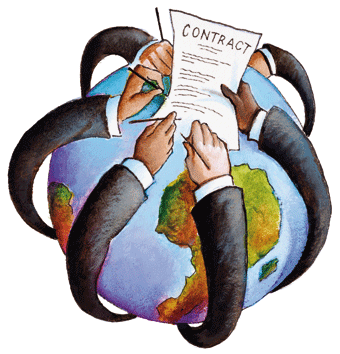As a REALTOR, you need to maintain a digital presence. At minimum, you need an e-mail address. You could choose to use a free e-mail provider, or you could do it the right way, by registering your own domain name and making up your own e-mail address. For example, you@yourdomain.com. The only way you can achieve this is by thinking up and registering your own name. Do this at Godaddy.com. Register it for a year, so you don’t over commit to a longer period of time, in case your name doesn’t work out for you, and don’t privately register it. You don’t need ANY other extras. Just the name.
Once you have the name, you can do whatever you want with it, but the first thing you’ll need to do is establish your e-mail system.
Your best bet in our current internet climate, is to subscribe to Google Apps for Domains. You can do this by visiting http://www.google.com/apps. You get a 30 day trial, and after that, your cost is minimal. It gives you a platform full of organizational and collaboration tools that are perfect for what you do. Setup is a breeze, and the web interface works with every computing device and browser that exists, so you don’t need your own computer to manage the information, and the information remains updated, live, across every device you have, inherently.
The second task that is associated with your domain is establishing a website. Find a hosting provider you trust, create your account there, then tell them that you already have Google Apps for Domains set up. They’ll need to help you configure an account with them so your mail still goes to Google’s servers and not to theirs. The last thing you want is a proprietary e-mail system hosted by a web-hosting provider, as they are sub-standard and do not play well with the rest of the online world.
You’ll want to lean towards WordPress as the framework upon which your site is built. From there, you’ll choose from a host of free site themes, premium (paid) site themes, or custom designed themes. Then, you’ll have your choice of free plug-ins to enhance your site, and/or paid plug-ins for features such as IDX property searches.
Once you have these two major components of your domain in place, you can forge ahead worrying about little more than providing good quality content regularly.
 In 1994 I traveled the nation with a company called Camfel Productions. It was a fantastic experience. During that time I journaled every night. Every once in a while I type up a page and add it to the blog here, and that’s why you’ll see some posts dated pre-blog era. The problem I’ve faced is the amount of time it takes to re-type them. Even at 80+ wpm on a good day, it just doesn’t make sense for me to re-type the entire 80 pages, single spaced, when I already spent 10 months night after night typing it once.
In 1994 I traveled the nation with a company called Camfel Productions. It was a fantastic experience. During that time I journaled every night. Every once in a while I type up a page and add it to the blog here, and that’s why you’ll see some posts dated pre-blog era. The problem I’ve faced is the amount of time it takes to re-type them. Even at 80+ wpm on a good day, it just doesn’t make sense for me to re-type the entire 80 pages, single spaced, when I already spent 10 months night after night typing it once.